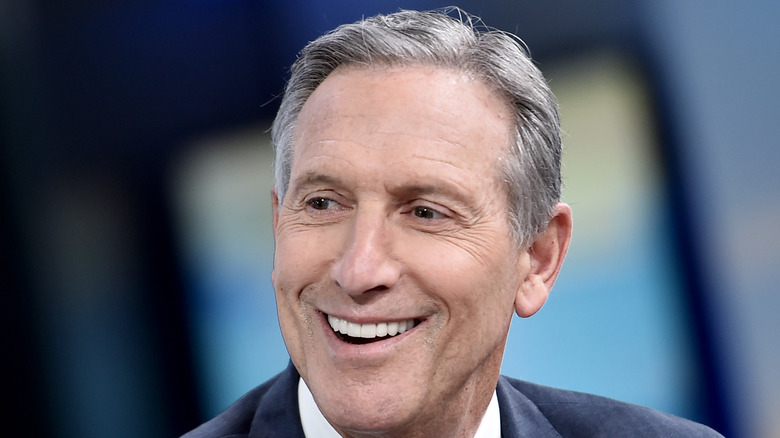Why Starbucks May Exclude Unionized Employees From New Benefits
If you've been paying attention to the conflict brewing within Starbucks, then you know the coffee megachain has been struggling with its reaction to a growing worker movement to unionize. In August 2021, after months of pandemic-related closures and irregularities left many baristas dealing with the fallout of long lines and long hours, three Starbucks stores in New York announced that they were unionizing in order to seek fairer working conditions (via The New York Times). Over the past year, the movement has grown, with nearly 200 U.S. locations announcing their intention to unionize, according to the Wall Street Journal.
As employee efforts to unionize have spread, Starbucks' corporate response to the movement has also come under fire. Earlier this month, former CEO and early shaper of the company Howard Schultz rejoined the Starbucks board as interim CEO, and he has been transparent not only about the fact that he was brought back on to help navigate unionization, but also that he doesn't support the effort (via New York Post). According to More Perfect Union, Starbucks has been accused by pro-labor organizations of union-busting tactics, and this week, those efforts seem to have intensified as Schultz told store leaders the company is considering extending additional employee benefits — to non-unionized workers only.
These benefits couldn't legally go to unionizing stores
As reported by the Wall Street Journal, Starbucks interim CEO Howard Schultz recently shared the company is considering an expanded employee benefits package — which wouldn't legally be permitted to extend to the newly unionized stores. In an online discussion with store management this week, the paper reports, Schultz stated that he was looking into ways to better attract and retain baristas, including increased pay and benefits, but also mentioned that legally, those benefits could not go to workers involved in unionization because federal law requires that contracts for union-represented workers be negotiated separately.
Labor law experts told the New York Times that these types of discussions of benefits are perfectly legal, but that it wouldn't be legal for Starbucks to imply that employees would receive better pay and benefits if they decided not to unionize, which would amount to a type of union-busting threat. "It's a union avoidance technique," Cathy Creighton, a former lawyer for the National Labor Relations Board, told the Wall Street Journal.
As Schultz has stepped up his anti-union rhetoric, Starbucks employees have responded less than favorably to his comments, but stand by the company. Maria Suevo, a Boston barista involved in unionization efforts, told the Wall Street Journal she is staunchly pro-union but also supports her employer. "I don't hate Starbucks," she said.

